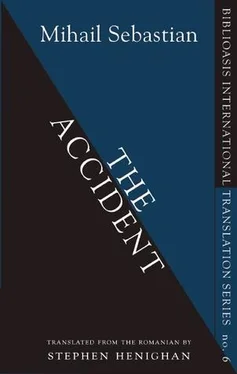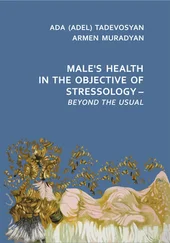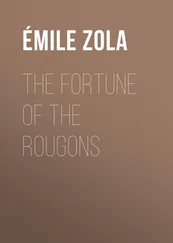“Maybe they need help. There’s still one carbine here.”
“We have it here, and it’s good for it to stay here,” Nora said to stop him from leaving.
The wait was so difficult, filled with so many presentiments and unasked questions, that at first not even Hagen’s return laid them all to rest.
“I’m bringing you a bear cub,” he said, as he entered.
In fact, he was carrying on his arm a frozen baby bear, its pelt white with snow, its eyes half-shut with cold or exhaustion, its front paws tucked beneath its coffee-coloured muzzle, as though it were trying to warm itself up on its own.
“It must have left its mother’s lair in daylight and then not been able to find its way back. I’m going to try to find it for him, but I’ve brought him here first so that you can see him.”
“Are there bears around here?” Nora asked, astonished.
“Only in one spot, down towards the sheep-run. I think there aren’t very many of them. This summer the shepherds were talking about a she-bear, a single one, who would come out at night now and then at the sheep-run.”
Hagen had set down the bear cub on the carpet. They all gathered around to look at it. Only Faffner had to be kept away, since he was barking incessantly and showing his fangs as if he wanted to tear the cub open.
“He smells of the wilderness,” Hagen said.
Nora remained puzzled. Long ago she had learned at school that bears hibernated in total lethargy. She didn’t understand by what miracle this cub had reached their hands alive in the depths of winter.
“But that’s not true at all,” Hagen said. “You can’t even talk about total lethargy. It’s a kind of slumber, a kind of drowsiness, from which the bear awakes now and then, and — but of course usually not when there’s a blizzard — sometimes goes outside into the daylight. Especially when he’s restless, like this little brute.”
He spoke about these matters with a certain passion. For the first time since she had met him, his speech, normally harsh and cold, began to have a friendly air. He remained bent over the sleeping little brute with the attentive gaze of a man tamed.
Midnight found them silent and watchful around the bear cub who had entered the house with the new year.
It might be a sign, Nora thought.
He brought with him a smell of forest and earth. He looked ridiculous and dishevelled when he started to stretch and they all stared at him with amazement. He came from a mysterious life, hidden beneath the ice, beneath the snows. The stillness of the forest preserved roots and beasts. Everything appeared dead, yet underneath it was alive.
“Life’s always starting over,” Nora whispered, looking at the little beast, which she had bent over in order to caress its snow-damp muzzle. She wasn’t certain to whom or for whom she was speaking these words. For Paul, who had struggled so long to escape from his memories, as though they were a winter. For Gunther, who still had his eyes turned back in the direction of his vanished mother. For Hagen, who tried to conserve the image of the woman he had loved in a house with closed shutters. And for you, my poor old Nora, who’s believed so often that she has nothing more to expect from anyone .
“It’s midnight,” she said in a loud voice, and went to extinguish the lamp. Only the wood burning in the fireplace continued to toss its feeble reddish light over their faces, which took on more serious expressions in the darkness.
In the distance, on the summit of the mountain, they heard gunshots. Rifles were being fired off in honour of New Year. Faffner, who had been snarling the whole time, fell silent and listened.
When they had put the lights back on, they looked at each other for a few seconds without speaking.
“Life’s always starting over,” Nora said, mainly for herself. These words pleased her. She thought it was good that they were the first ones she had spoken in the new year.
“It’s time to go home,” Hagen said to the bear cub.
He got up and went into the woods again, carrying it on his arm. The dog followed calmly behind him. Nora, standing between Paul and Gunther, watched him leave from the doorway. The three of them stayed there for a long time. The night was peaceful and misty. They could still see Hagen’s lantern among the fir trees. His dark cape passed over the snow like a shadow.
“THE CLOUDS ARE BREAKING UP!”
From the SKV chalet to the Touring Club, the news rushed through the woods like a yell: “The clouds are breaking up! The mist’s lifting!”
The morning was grey, the horizon was closed off, and the light still lacked the spark of brightness. The summit of Postăvar looked foreshortened beneath a damp, opaque sky that had fallen too low.
Yet from the Saxons’ chalet came shouts that announced sun and light.
“You can see Braşov! You can see Râşnov!” people coming down from the chalet recounted with astonishment. Groups of skiers rushed downhill towards the SKV chalet to ascertain that this miracle had actually happened.
Nora and Paul arrived too late.
“We had sun until a minute ago,” the man with the eyes of a badger said as he greeted them. He blinked repeatedly, as if he had been blinded by the light. The curtain of clouds, having lifted for a moment, had once again fallen towards the invisible world of the valley.
Everyone had squeezed onto the balcony as though onto the bridge of a steamship in order to follow the sun’s unexpected return. From that lookout point, when the sky was clear, one could see all of the Burzenland, all the way to the Făgăraş Mountains. It was like a window in the peak of Postăvar, open in the direction of the plain, a window lost in clouds since the onset of winter and through which, for a few seconds that morning, that sunlit vision of Braşov had appeared, only to vanish into nothingness once again.
People looked confused by that too-fleeting vision that had flashed in the distance then been extinguished. The mist settled over the pine forests and the cliffs again, with its hazy light, which snuffed out the last glimmering from the rocks.
“Look!” somebody shouted.
The murk blocking the horizon had divided and a floating ring of blue light had opened like a phantasmagoric town among the clouds. Smokey drapes were pulled aside, walls of mist collapsed. A steel-roofed citadel sparkled in the sun, with spears and shields raised in the light.
It wasn’t Braşov. It was too far away to be Braşov, it was too dazzling.
Avalanches of clouds covered it, tossing it into darkness again, but a second later it sprang up once more in another spot, like a travelling island or a fantastic gulf in that ocean of smoke and mist. Sometimes the visions were sharp, simple, easy to recognize. Someone would point out Râşnov or Zizin, the winding road to Bran, or the glowing factory towers of Zărneşti, through the clouds. But in a single instant everything would disappear. Towns cut loose from their locations were buffeted from one streak of light to another, harbours of light opened and closed, passing mist evaporated in the sunlight…
For two days the weather fluctuated between sunlight and blizzards. The mornings were luxuriant, as though experienced on the doorstep of an immense grotto. The clouds were torn, curving into distant Arcs de la Triomphe, blue vaults, brilliant costumes. From one second to the next, smokey continents took shape then melted over the flat Burzenland plain. Mountain ranges rose and fell in a magical light.
The mist swirled up from the forest like smoke from a great fire. Each fir tree seemed to burn in a cold flame, with a metallic sound. Mountains bucked to shake themselves free of cloud. There was sunlight all over the Burzenland, there was sunlight all over the Prahova Valley; only Postăvar, like a smoky bell, a citadel of blackness, remained enclosed in its winter walls.
Читать дальше












